第26章 AFTER IN MEMORIAM.(5)
The Master of Balliol kept insisting, "As to the critics, their power is not really great. . . . One drop of natural feeling in poetry or the true statement of a single new fact is already felt to be of more value than all the critics put together." Yet even critics may be in the right, and of all great poets, Tennyson listened most obediently to their censures, as we have seen in the case of his early poems.
His prolonged silences after the attacks of 1833 and 1855 were occupied in work and reflection: Achilles was not merely sulking in his tent, as some of his friends seem to have supposed. An epic in a series of epic idylls cannot be dashed off like a romantic novel in rhyme; and Tennyson's method was always one of waiting for maturity of conception and execution.
Mrs Tennyson, doubtless by her lord's desire, asked the Master (then tutor of Balliol) to suggest themes. Old age was suggested, and is treated in The Grandmother. Other topics were not handled. "I hold most strongly," said the Master, "that it is the duty of every one who has the good fortune to know a man of genius to do any trifling service they can to lighten his work." To do every service in his power to every man was the Master's life-long practice. He was not much at home, his letters show, with Burns, to whom he seems to have attributed John Anderson, my jo, John, while he tells an anecdote of Burns composing Tam o' Shanter with emotional tears, which, if true at all, is true of the making of To Mary in Heaven. If Burns wept over Tam o' Shanter, the tears must have been tears of laughter.
The first four Idylls of the King were prepared for publication in the spring of 1859; while Tennyson was at work also on Pelleas and Ettarre, and the Tristram cycle. In autumn he went on a tour to Lisbon with Mr F. T. Palgrave and Mr Craufurd Grove. Returning, he fell eagerly to reading an early copy of Darwin's Origin of Species, the crown of his own early speculations on the theory of evolution.
"Your theory does not make against Christianity?" he asked Darwin later (1868), who replied, "No, certainly not." But Darwin has stated the waverings of his own mind in contact with a topic too high for a priori reasoning, and only to be approached, if at all, on the strength of the scientific method applied to facts which science, so far, neglects, or denies, or "explains away," rather than explains.
The Idylls, unlike Maud, were well received by the press, better by the public, and best of all by friends like Thackeray, the Duke of Argyll, the Master of Balliol, and Clough, while Ruskin showed some reserve. The letter from Thackeray I cannot deny myself the pleasure of citing from the Biography: it was written "in an ardour of claret and gratitude," but posted some six weeks later:-FOLKESTONE, September.
36 ONSLOW SQUARE, October.
My Dear Old Alfred,--I owe you a letter of happiness and thanks.
Sir, about three weeks ago, when I was ill in bed, I read the Idylls of the King, and I thought, "Oh, I must write to him now, for this pleasure, this delight, this splendour of happiness which I have been enjoying." But I should have blotted the sheets, 'tis ill writing on one's back. The letter full of gratitude never went as far as the post-office, and how comes it now?